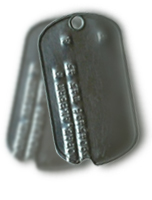
HEAL! is dedicated to the men
and women who have served
our country during military
conflicts, have given selflessly,
and have struggled in their
return to civilian life.
In remembrance, I pay tribute
to Albert Francis Topaz, my
father, who served as a tail
gunner during World War II.
The Department of Veterans Affairs has formally diagnosed more than 247,243 Iraq and Afghanistan war veterans with post-traumatic stress disorder (PTSD).
In “HEAL!,” San Francisco artist Vicki Topaz chronicles the healing journeys of veterans. The multi-media project is comprised of portraits, in-depth interviews, video conversations, social media, and a dedicated website with topical information.
Topaz portrays U.S. veterans living with post-traumatic stress and other psychological disabilities, seeking to cope day-to-day with the help of steadfast and highly trained companions—their service dogs. HEAL! illustrates how service dogs empower our veterans helping them find a “new normal” as they adjust to life after service.
With the use of portrait photography and intimate interviews, Topaz encourages contemplation of, and compassion for our military personnel. She draws attention to the challenges they face while dealing with the aftermath of combat, multiple tours, military sexual trauma, and survivor guilt.
The veterans’ stories describe coming home and the difficulties of rejoining families and fitting back into civilian society. Post-traumatic stress causes many veterans to isolate themselves, to self-medicate, and in many cases, to want to re-enlist. When in-service, they know where they fit in.
The Human-Canine Bond
A disabled veteran partnered with a service animal can find the courage to live again and face each day with more confidence. A service dog will lean on the leg of their veteran to provide a sense of security and mitigate the fear of being alone in a crowded supermarket. A service dog can help at night by awakening their veteran before the onset of night terrors with a slurp on the face or a paw on the chest. The support of a service dog can facilitate reengagement with family and community. A service animal is also a viable alternative or complement to the medications often administered for psychological disabilities. Frequently such medications can compound veterans’ problems due to unwelcome side effects, including addiction.
Partnering with a service dog redirects a veteran’s focus away from post-traumatic stress, assists with recovery from traumatic brain injury, and nourishes the will to live. The service members who have participated in HEAL! willingly share their stories publicly to encourage their brothers-and-sisters-in-arms to seek help. Returning U.S. veterans are committing suicide at a rate of 22 per day. The rate is lower amongst those who overcome the stigma many veterans associate with reaching out for help and mental healthcare.
The human-canine bond is a source of hope for the future for these veterans and their families.
